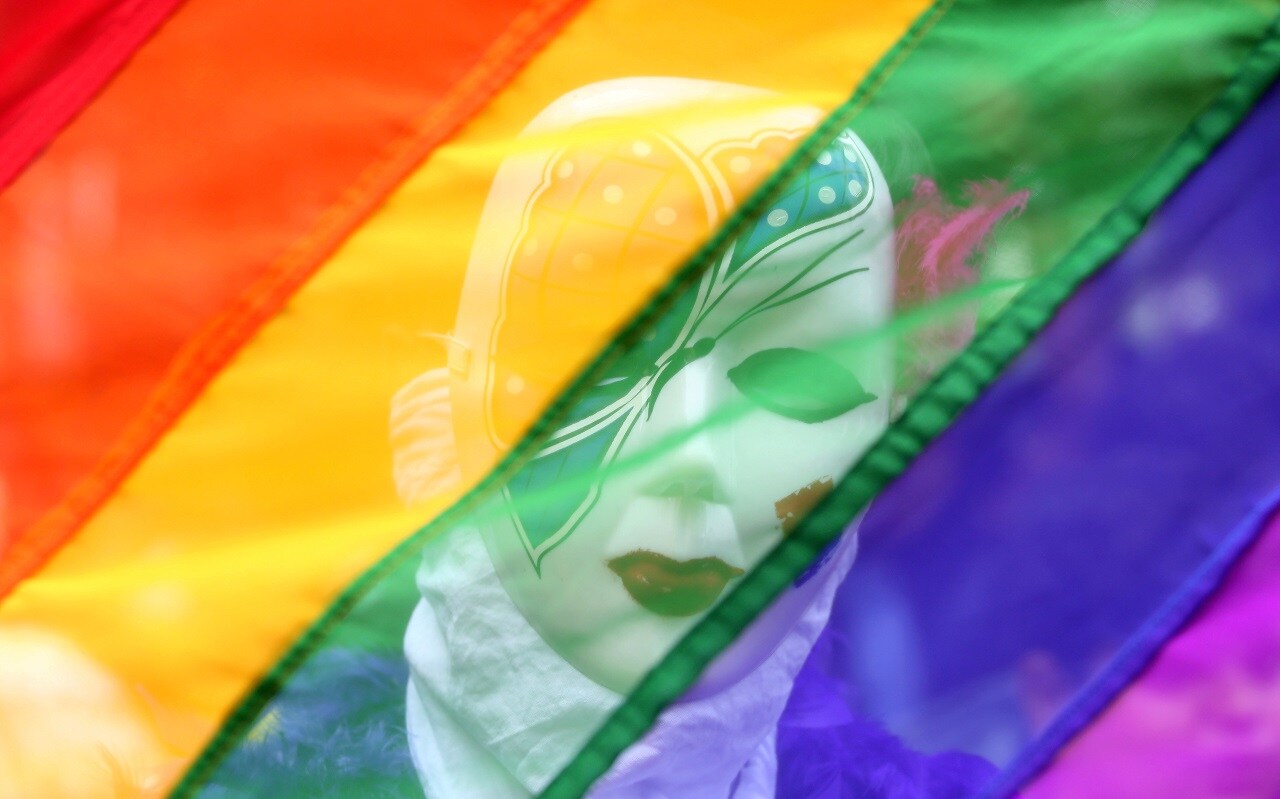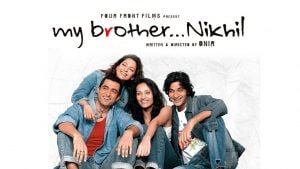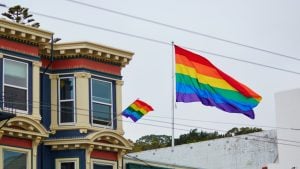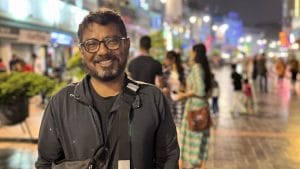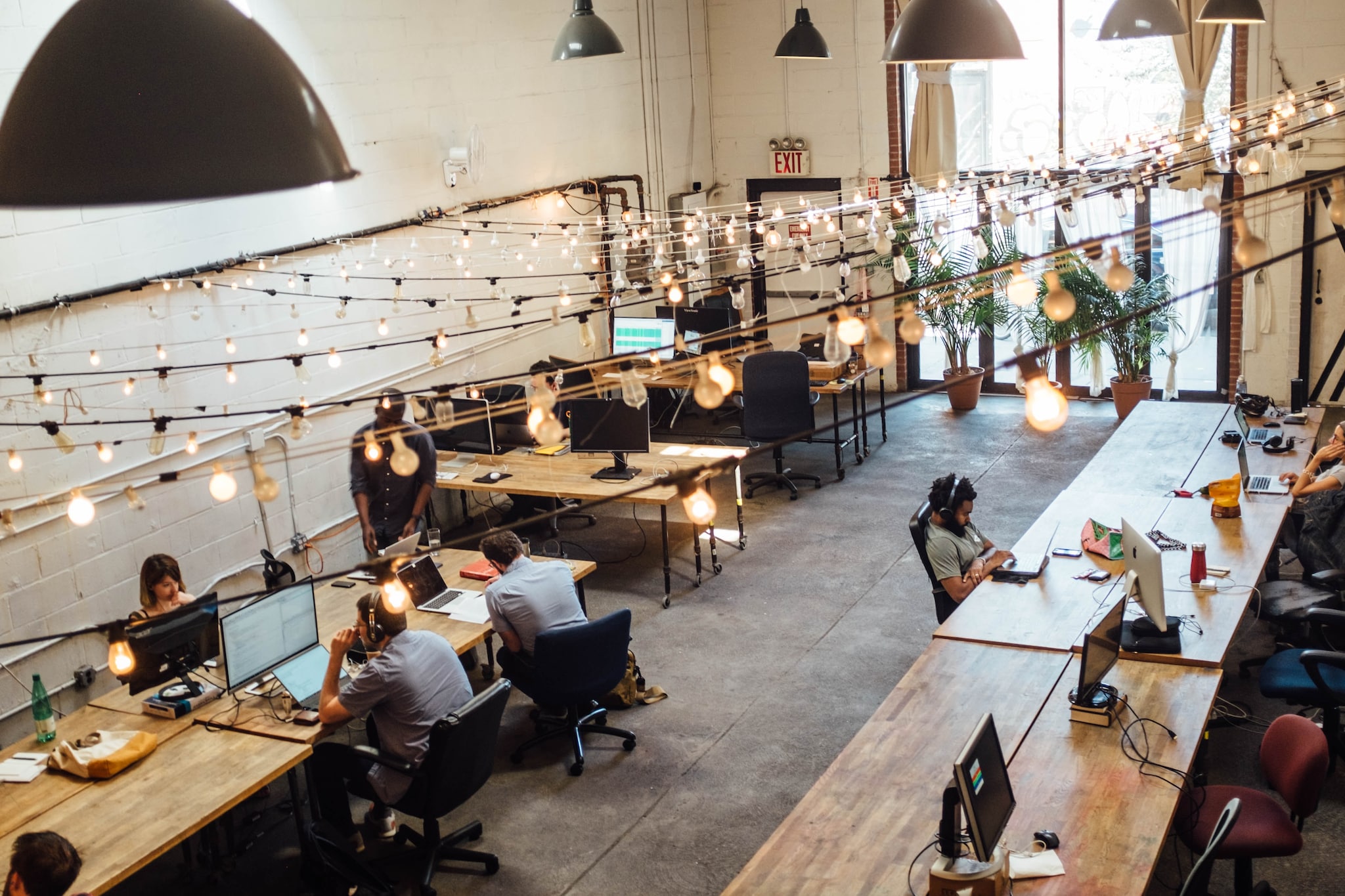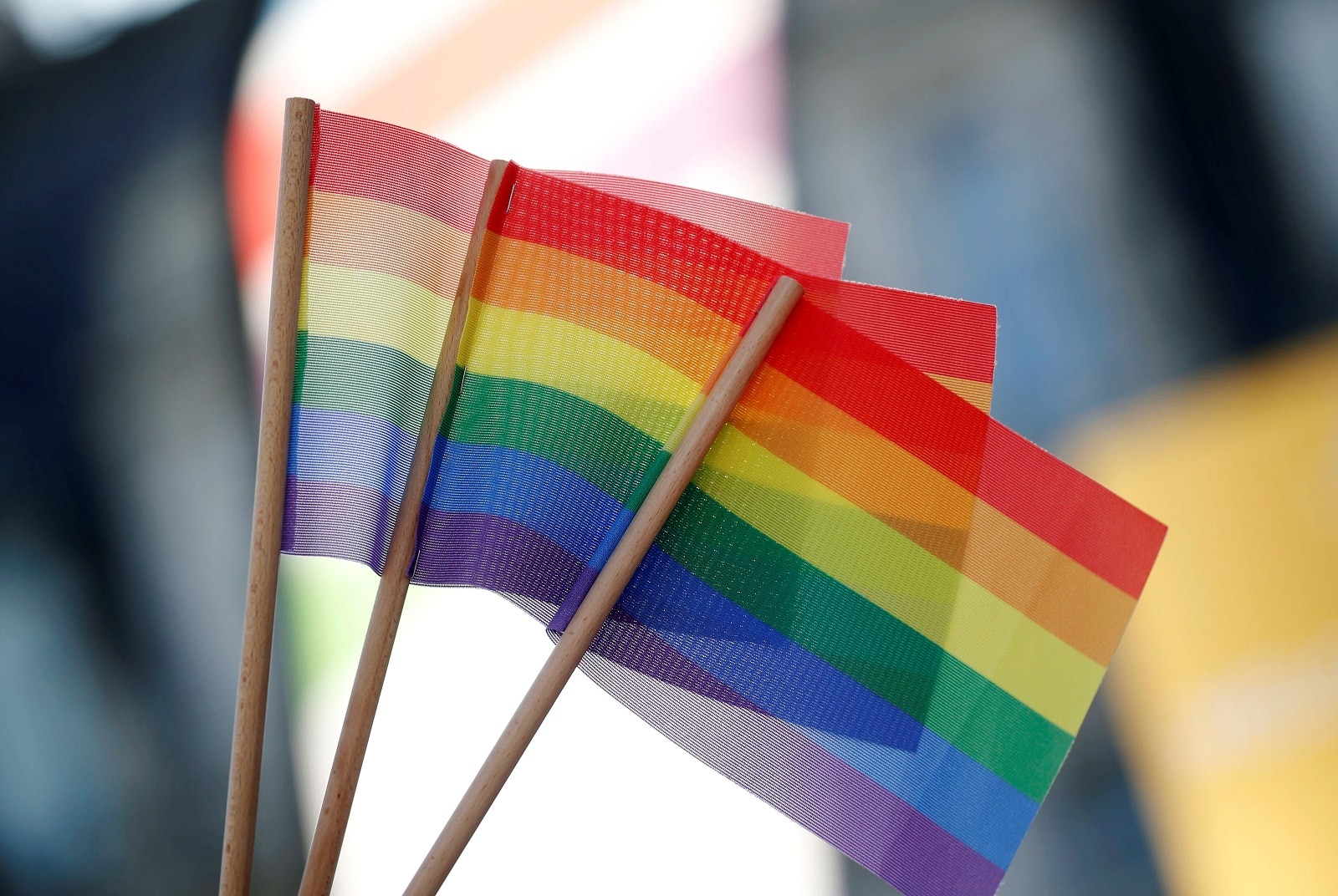Onir: It really surprises me that even after so many years, I still face the same resistance

KV Prasad Jun 13, 2022, 06:35 AM IST (Published)
 Listen to the Article (6 Minutes)
Listen to the Article (6 Minutes)
Summary
In this exclusive conversation, the 53-year-old filmmaker talks about his new memoir I Am Onir and I Am Gay and the hypocrisy of heteronormative people telling queer stories of acceptance when those from the community are still struggling to amplify their voice and work.
Onir is one of the few openly gay filmmakers in the Hindi film industry who has not shied away from accepting his identity even if it meant brickbats, hate, and a never-ending struggle for acceptance.
Originally from Bhutan, he was called Anirban Dhar before he started using Onir as his professional name with the release of his first film, My Brother Nikhil, in 2005. Starring Sanjay Suri, Juhi Chawla, and Purab Kohli in important roles, it was a story of a young swimmer navigating life as a gay man in a deeply prejudiced society, who prematurely dies of AIDS.
Today, several films later, he is ready to share his poignant story that cuts across varied landscapes—Thimphu, Calcutta, Berlin, Paris, and finally Bombay. His memoir, I Am Onir and I Am Gay, traces the journey of a 53-year-old homosexual filmmaker from when was a young boy living in the idyllic mountain nation with his parents and two siblings to finally finding out what it takes to not live a lie and make dreams happen.

In this pride month exclusive, Onir talks about his new book, which he has co-written with his elder sister — screenwriter-editor Irene Dhar Malik — the perils of claiming his identity and rightful place in a deeply homophobic world, casting a queer actor in the lead role in his upcoming film Pine Cone, his enduring friendship with actor Sanjay Suri, and how, despite more number of queer stories being told now, not much has changed in the last 17 years since he made his directorial debut.
Q. You have co-written the book with your sister. How involved was she in the writing process?
A. It went off quite smoothly. I would write the first draft and I would send it to her. Especially about childhood, there was a lot of detailing, which I am a little bad with. I’d get mixed up and she’d put things correctly. We started writing during the lockdown. So that was a good way of utilising time. I didn’t expect the first draft to happen as organically and smoothly as it did because as a writer I am very temperamental. There are times when I can write quickly and succinctly. But there are also times when I have a block and can’t write for months. This happens with my scripts too. If I get stuck, I get really, really stuck — for years sometimes. But thankfully, that didn’t happen while writing this book. I was afraid because it was not a planned process. I simply started writing and then it just flew. I’m glad it went that way.
Q. Why write an autobiography or a memoir right now? What about the things that you’ll do from here on?
A. It was quite accidental. I had approached my agent to get the rights to The Carpet Weaver, the first LGBTQIA+ novel from Afghanistan. I was really keen to make a film on it. While negotiating those rights, she kept insisting that it was time that I wrote and I thought it sounded as if I’m retiring, that why should I do it so early. I was very reluctant. But when I discussed it with my sister, she said, “Look, when you grew up, you didn’t have any reference points in life. And now, you are of the very few out-and-proud filmmakers.”
Even generally, not too many people are publicly saying they are gay. So many youngsters, struggling with their own journeys, message me on Twitter and Instagram, wanting to know how they are to come out, how it is to be out-and-proud. This is not a book that tells you how to come out or be, each of us has our own journeys, but it’s good to have a reference point. It’s good to have somewhere where your identity is valued and celebrated. That is what convinced me to write it, as my journey not only as an independent filmmaker but also as an out-and-proud gay man.
Q. In the book, you write, “My sexuality is a part of my identity, a very important one, but not the all-defining factor. I am gay. And more.” And yet a lot of your films revolve around homosexuality and your memoir is titled I Am Onir and I Am Gay. Do you feel limited by your sexuality? How does it play out?
A. It’s anyway bracketed. If you really think, most of my work is not about queer identity. More of my films deal with non-gay relationships. My Brother Nikhil was more about the brother-sister relationship, where the brother happens to be gay. It celebrates the equation between siblings. Bas Ek Pal (2006), Sorry Bhai! (2008), Kuchh Bheege Alfaaz (2018), and Chauranga (2014) have nothing to do with homosexuality. In I Am (2011), two of the four stories talk about themes related to LGBTQIA+. Shab (2017) had gay characters. So it’s not like that’s what most of my work is about. Why does no one ask a straight filmmaker why their work is mostly about straight people? So you anyway get compartmentalised, whether you like it or not.
Similarly, when we were deciding on the book’s title, people told me, “Onir your identity is not just that.” But tell me one book in India in which anyone has claimed their identity with pride, saying they are gay. Everyone is trying to “be subtle” or hide it as if it’s something to be ashamed of, as if you were a criminal. By celebrating this part of my identity, I’m sending out a message to not just the community but the larger world that I want to claim my space which you are denying me.
Because the truth is, till four years ago, we were criminalised by law. Have you ever heard anywhere in the world of a straight person being criminalised by law? Today, even after decriminalisation, we are not treated as equals by law, different agencies, society, family, and very often, even by friends. That’s the reason why it’s more important. People constantly shy away. But why? I would shy away from my identity if I were ashamed of it. This, I feel, is something that everyone should be proud of. Not even proud, it’s just…natural. So why not claim it when everyone is constantly trying to deny it?
Q. In the book, you talk about your friendship with Sanjay Suri with a lot of love and affection. You’ve also dedicated the book to him along with your family members. How has your equation with him evolved over the years? When are you guys making a film together next?
I have just completed shooting a film called Pine Cone, in which Sanjay is one of the producers. We were supposed to start We Are, the sequel to I Am, which has got delayed, but we will make it. Sanjay and his family are like family to me. Sanjay’s wife, who has worked with me ever since My Brother Nikhil, is even now working with me. I blindly trust her. Even his sons. From friends, we have become family over the years. My bond with them is very precious to me.
Q. You have cast a queer actor as the lead in Pine Cone. How important was it to do this? Also, what’s the film about?
A. It’s the journey of a gay man through three decades of his life — when he is a teenager coming to terms with his sexuality, which I have shot in Sikkim and it’s set in 1999 when the first gay pride happened in Calcutta. Then 10 years later in Mumbai when he is 28, trying to make something of his career, he encounters love, lust, and desire. Then finally when he’s 38. This part is set in Kochi in 2019, one year after the Supreme Court verdict. He has now become a cynical man because even after being accepted by the law, society at large is still not accepting. The film is about how he navigates through all these different phases.
For me, Pine Cone was important to make because I constantly see films being made about our lives through the heteronormative gaze, which is all about the heteronormative world accepting us. But why should my existence be only dependent on the heteronormative world accepting me? I have a life. I have desires. I have love. And those are independent. Why are we always looking for validation? I want Pine Cone to not take baby steps toward acceptance because I am not taking baby steps for my life. I’m 53 years old. I have lived my life. The shortcomings of a lot of people not accepting us will not dictate my life. That’s how this film started. It would be the first of its kind because of the way it explores desire.
I am very happy that my lead actor is out-and-proud queer. I got to know about it after I cast him which made me happier because I didn’t cast him only because of his sexuality. I think it is important because when I was casting, most straight actors who I approached for this role would either say that they are uncomfortable, or that it wouldn’t be the right move to do this film at this point in their career, or they would just not reply. I always wonder why straight people feel so insecure about portraying a gay man on screen? They don’t feel as insecure when playing a negative role or a criminal.
So it was important for me to look out for and cast the people who belong to the community and feel empowered and celebrate art. That feeling will come across each frame. When I was working with Vidur Sethi, I felt that energy; the energy of someone who has lived a life I’ve lived and who was not trying to understand what it feels like. He was living it and therefore brought so much more than just understanding to the character. Even for We Are, I’ve cast a transwoman for the role of a transwoman. I’d like to do this more often.
Q. Queerness is everywhere in films and on streaming now. Films like Aligarh, Chandigarh Kare Aashiqui, Badhaai Do, Cobalt Blue, Gangubai Kathiawadi, Geeli Pucchi, and web shows like Sacred Games, Made in Heaven, and Mai. Do you think a lot has changed in how such films are made, viewed, and received since you made My Brother Nikhil 17 years ago?
A. We are the largest film industry in the world but look at the number of queer films we are making. It is really skewed. I also wonder why even after 2018, there is so little work by out-and-proud queer filmmakers on OTT platforms and elsewhere? Who is feeling insecure if we tell our stories the way we want to?
During pride month, everyone celebrates My Brother Nikhil and I Am, but when I send the proposal for We Are or Pine Cone to studios or platforms, there is absolute silence. Perhaps they’ll celebrate these films after another 10 years. But when I’m making them, I feel there is a sense of discomfort because probably these people are struggling to accept us. The heteronormative gaze on queer lives does not reflect or tell our stories the way they need to be told. I feel much more should happen than what is happening.
Look at Made in Heaven. A lot of the story was very similar to the track that I had in My Brother Nikhil and I Am. Even if it is very similar to what I have done, I don’t see me being approached by any platforms and studios for work and I wonder why. Is it because I am out and proud? Are these people homophobic? I don’t know. It really surprises me that even after so many years, I still face the same resistance.
Q. You are very vocal about your views on Twitter, for which you often get a lot of hate. All this mindless trolling can really mess with one’s sense of self and sanity. How do you keep at it?
A. I used to get really worked up earlier when people would say stuff like you should be beheaded with your family. But then I look at all the women, be it Swara Bhasker, Rana Ayyub, or other women journalists. The kind of abuse and trolling they have to face, compared to that, mine is nothing. The kind of nonsense they face, nobody should have to. They give me courage. They show me how important it is to keep on speaking up.
Read other pieces by Sneha Bengani here.

Elon Musk forms several ‘X Holdings’ companies to fund potential Twitter buyout
3 Mins Read
Thursday’s filing dispelled some doubts, though Musk still has work to do. He and his advisers will spend the coming days vetting potential investors for the equity portion of his offer, according to people familiar with the matter

KV Prasad Journo follow politics, process in Parliament and US Congress. Former Congressional APSA-Fulbright Fellow



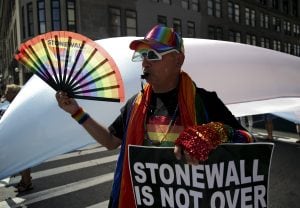






 Listen to the Article
Listen to the Article  Daily Newsletter
Daily Newsletter






